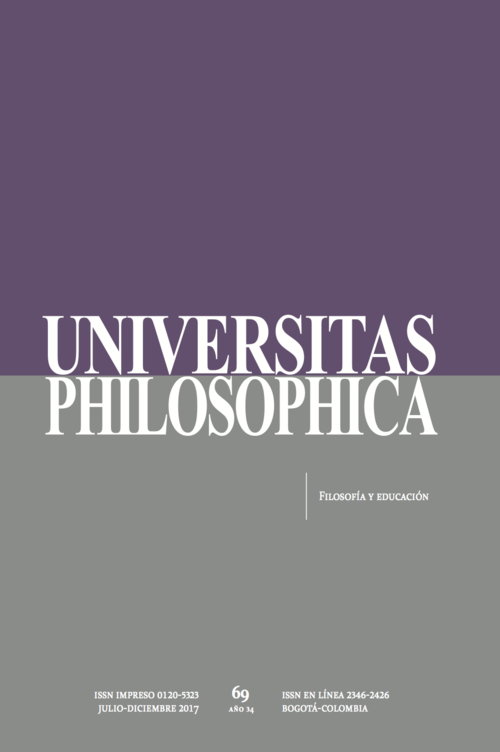Resumen
La tesis central del artículo es que para Sócrates la virtud política se realiza exclusivamente en la esfera del lenguaje o el gesto. La argumentación consta de tres partes. En primer lugar, siguiendo las lecciones tituladas ¿Qué significa pensar?, examino la interpretación heideggeriana de la figura de Sócrates en relación con los temas del gesto y lenguaje. Al concluir este análisis planteo que Heidegger omite aspectos importantes de la comprensión socrática de la relación entre virtud política y habla. Seguidamente, con base en el análisis de un pasaje central de la Apología de Platón, argumento que la virtud exige la comunicabilidad pública de la palabra, y se impone en el lenguaje y los gestos como un principio de acción que precede y excede al saber conceptual. Finalmente, concluyo que el poder político se restringe a la medialidad del lenguaje, a lo que la palabra hace o dice por sí misma.
Esta revista científica se encuentra registrada bajo la licencia Creative Commons Reconocimiento 4.0 Internacional. Por lo tanto, esta obra se puede reproducir, distribuir y comunicar públicamente en formato digital, siempre que se reconozca el nombre de los autores y a la Pontificia Universidad Javeriana. Se permite citar, adaptar, transformar, autoarchivar, republicar y crear a partir del material, para cualquier finalidad (incluso comercial), siempre que se reconozca adecuadamente la autoría, se proporcione un enlace a la obra original y se indique si se han realizado cambios. La Pontificia Universidad Javeriana no retiene los derechos sobre las obras publicadas y los contenidos son responsabilidad exclusiva de los autores, quienes conservan sus derechos morales, intelectuales, de privacidad y publicidad.
El aval sobre la intervención de la obra (revisión, corrección de estilo, traducción, diagramación) y su posterior divulgación se otorga mediante una licencia de uso y no a través de una cesión de derechos, lo que representa que la revista y la Pontificia Universidad Javeriana se eximen de cualquier responsabilidad que se pueda derivar de una mala práctica ética por parte de los autores. En consecuencia de la protección brindada por la licencia de uso, la revista no se encuentra en la obligación de publicar retractaciones o modificar la información ya publicada, a no ser que la errata surja del proceso de gestión editorial. La publicación de contenidos en esta revista no representa regalías para los contribuyentes.


